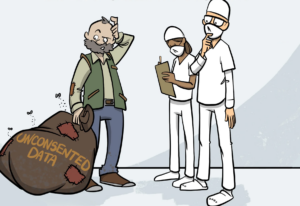“Data-Driven Thinking” is written by members of the media community and contains fresh ideas on the digital revolution in media.
Today’s column is written by Brian Dolan, CEO and founder of WorkReduce.
If 2020 prepared us for anything, it’s to expect the unexpected. And with 2021 already throwing us curveballs, it’s not crazy to think there are more in store.
But what does that mean for agencies? If there’s more insanity on the horizon, what can we do to create stability?
Get ahead of client needs
For starters, now is the time to build relationships.
It’s become easier to get in touch with senior executives. The noise of the office is gone, we know who has cats, dogs and/or kids and the opportunity exists to make new and lasting interpersonal connections that can go a long way toward humanizing and personalizing our working relationships.
Which is a good start. But forming relationships isn’t everything. Clients also want data. Agencies have to focus on client retention now more than ever, and that starts with doing more to reassure clients about the impact of their work.
Nearly every advertiser saw at least some aspect of their business change in 2020. From bankruptcy or near-death experiences in sectors such as travel to the mind-boggling case study in brand equity that Clorox is providing the world, every advertiser has something to learn from changes in consumer spending and behavior.
But it’s not just beating the dead horse of “show me the data” — it’s a question of what the differential of 2020 tells us about the brands, messages and buying strategies we’ve employed in the past.
For example, what can we learn about the value of a brand, and how consumers perceive and consume it? Agencies should invest in analytics and insights to show results and support strategies. One major holding company is spending millions in this area to retain a large electronics client, giving an indication of where the industry is headed on this.
As always, clients are turning to agencies for help, and to take advantage of their core value proposition, which is to benefit from their breadth of experience across clients and categories.
Clients, particularly those with in-house operations, have often confessed their fear of being unable to keep up with the Joneses. Now, without live conferences for easy intel gathering, and against a very different backdrop, agencies have an opportunity to supply the juicy details that can capture client attention and catalyze them into action.
Be a guiding light
But an agency’s ability to support existing clients and expand in new directions will be largely contingent on whether its leadership can make agile business decisions and plug staffing holes quickly. Internally, agency leaders should be open with teams about the business and what’s happening so as to provide reassurance when possible and spur a sense of common urgency.
The reality is that many of our team members are facing significant difficulties with community lockdowns, remote and hybrid schooling and general emotional stress. These unusual times call for radical candor on the part of leaders to share their own struggles.
Yes, leaders need to demonstrate strength and instill confidence, but revealing their struggles can help build solidarity with employees and offer insight for how they can overcome their own challenges.
Agencies can also become stronger by finding creative ways to help teams excel in their roles while still meeting other demands. It’s helpful for teams to hear that leadership is aware of their challenges and open to adapting and providing flexibility. This means engaging with employees to find solutions that are mutually beneficial.
For example, enable individuals to shift their hours or break up their day to fit other demands on their personal time. Allow for unexpected interruptions without guilt. Shifting the focus from counting hours worked to measuring productivity gives employees more control over how and when the work gets done.
Design adaptable business strategies
With so much of what we’ve taken for granted swept away – and a long winter ahead of us – it’s more difficult than ever to set goals and actually meet them.
Rather than having set-in-stone plans, agencies need to rely more on what-if scenarios. What happens if the vaccine rollout continues along its slow and haphazard path? What happens if travel gets more restricted? What happens if communities ease guidelines? Considering what these scenarios mean for the business and making contingency plans will put agencies in a better position to pivot.
Flexibility means being able to let go of, or at least delay, big-picture, capital-intensive projects that might have seemed so urgent just a few months or a year ago. By the same token, though, It may also be worth charging ahead with programs that centralize and create efficiencies as several agencies are now doing in the wake of layoffs. While the patient is already on the operating table, why not do a little extra work?
And finally, agencies should continue to invest in their own growth. While it may seem counterintuitive, scaling back now only jeopardizes an agency’s ability to generate new business.
Instead, this is a time to seriously consider hiring more salespeople, to increase communications and to double down on efforts to ensure that teams are on top of their media targets. As much as agencies are looking to help clients get creative, they should also be applying that same critical lens to their own marketing.
Because here’s the thing: The only certainty in all of this uncertainty is that challenges can spark innovation and growth across industries.
If agencies can adapt, they will also be able to thrive.
Follow WorkReduce (@workreduce) and AdExchanger (@adexchanger) on Twitter.














